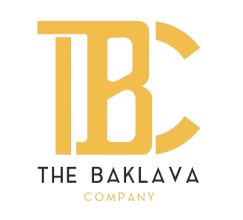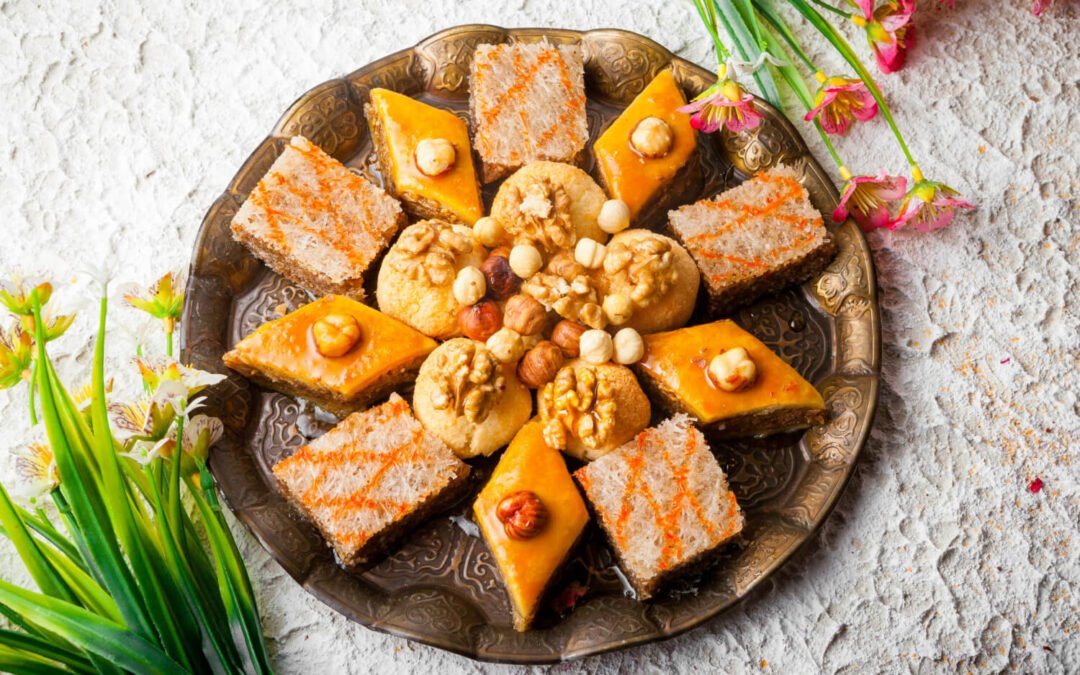Let’s have a look at this significant aspect of baklava in detail:
Eid al-Fitr and Eid al-Adha:
Eid al-Fitr and Eid al-Adha are two major Islamic festivals celebrated worldwide. Baklava dessert is a staple dessert served during these festivals, particularly in the Middle East, Turkey, and Central Asia. During Eid al-Fitr, the sweet is traditionally served after a month-long fast during Ramadan. It is known as “Bayram baklavası” in Turkey and is filled with Turkish coffee. In the Middle East, it is often served alongside other sweets like maamoul and stayed.
Greek Easter:
Greek Easter is one of the most important festivals in Greece and is observed by the Orthodox Church. Baklava is a traditional dessert served during Greek Easter celebrations, and it is often prepared in large quantities and distributed among family and friends. The Greek baklava is made with honey and walnuts and served alongside other traditional Easter dishes like lamb and tsoureki (sweet bread).
Diwali:
Diwali is the Hindu festival of lights celebrated in many parts of India and other countries with large Indian populations. Baklava is a popular sweet served during Diwali, alongside other traditional sweets like laddus and barfis. In India, baklava is known as “badam barfi” and is made with almonds, sugar, and ghee.
Christmas:
In some countries like Greece, baklava is a part of the traditional Christmas feast. In other countries like Lebanon and Syria, it is served during the Feast of the Epiphany, which marks the end of the Christmas season. The Lebanese baklava is made with pistachios and rose water, while the Syrian version combines pistachios, walnuts, and almonds.
Turkish festivals:
Baklava is a staple dessert in Turkey and is served during many festivals, including the national holiday of Republic Day and the Ottoman Empire-era festival of Ramadan Bayramı. During Ramadan Bayramı, families traditionally exchange plates of baklava as a sign of goodwill and celebration.
Aside from the festivals mentioned above, baklava is also served at other festivals in different parts of the world. In Armenia, for example, it is a traditional dessert served during New Year’s Eve celebrations. In Albania, it is commonly served during weddings, christenings, and other important events. Baklava is also a popular dessert during the Persian New Year, or Nowruz, celebrated in many countries, including Iran, Afghanistan, and Tajikistan.
Different types of baklavas are served at these festivals.
Different cultures have their unique twists on the traditional baklava recipe. In Armenia, for example, they make a version called “gata,” which has a similar flaky pastry crust filled with nuts, honey, and other ingredients. In Greece, they make a version called “baklava rolls,” which are cylindrical and filled with a nut and cinnamon mixture. In Iran, they make baklava called “baghlava,” made with syrup from saffron and rosewater.
The symbolism of baklava in different cultures.
Baklava is a delicious dessert in many cultures and carries essential cultural and religious symbolism. In some Middle Eastern cultures, it is considered a symbol of hospitality and is often served to guests to welcome them into their homes. In Greece, baklava is associated with family and community, and it is usually prepared and shared with loved ones during holidays and other special occasions. In some Hindu cultures, baklava is associated with prosperity and is served during Diwali to invite good fortune and success in the coming year.
To conclude,
Baklava is essential in various festivals worldwide, reflecting its popularity and significance in different cultures. The dessert has evolved to incorporate other ingredients and preparations, making it a versatile and beloved treat for people of all backgrounds. Today, baklava is also available online to buy. By searching ‘buy Baklava online’, you can get some of the best baklavas in India from the best stores.

